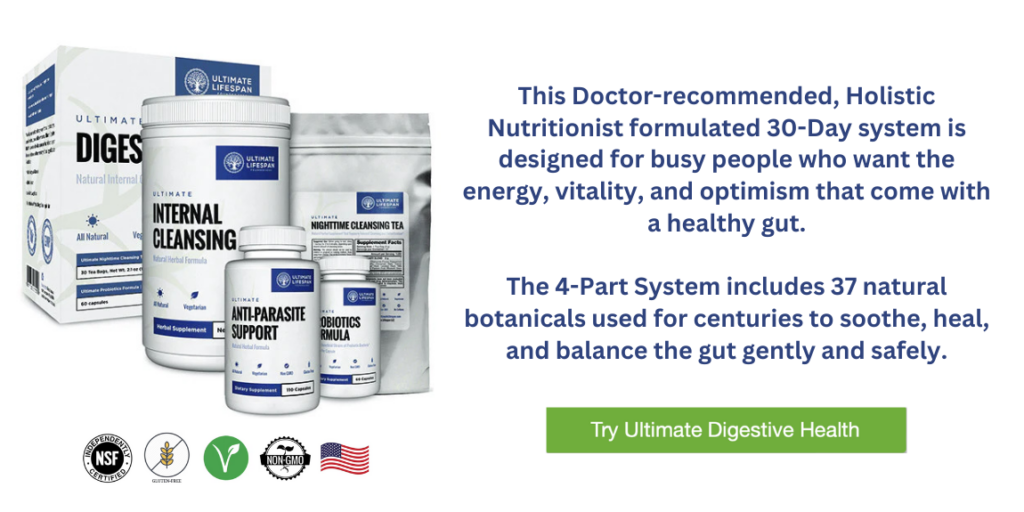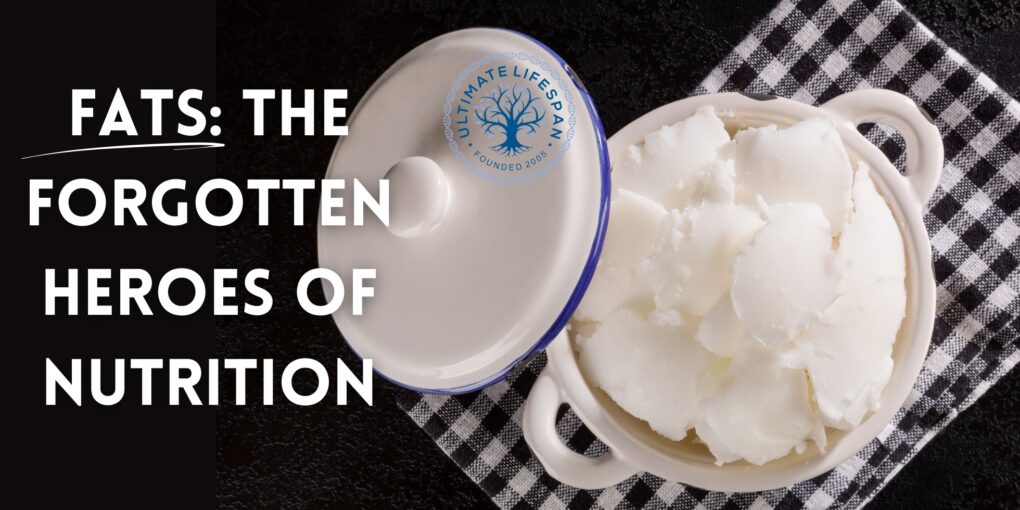Secret to a Healthy Diet: Good Fats
Did you know that your brain is roughly 60% fat? This might make you rethink the idea that “fat is bad” for you. In fact, healthy fats are essential for everything from brain function to hormone balance. While fat often gets a bad reputation in mainstream nutrition discussions, it plays a crucial role in keeping our bodies functioning optimally. If you've ever felt confused about which fats are “good” and which are “bad,” you're not alone. But the truth is, not all fats are created equal, and understanding the difference can transform your health.
What are Healthy Fats?
Fats are essential macronutrients, critical for everything from cellular integrity to energy production. They come in several forms: saturated, monounsaturated, and polyunsaturated, each with a different role in our health. Unfortunately, we’ve also got manmade trans fats, the true villains in the fat family, which are denatured and harmful, often found in processed foods.
The beauty of fats lies in their versatility and functionality. For instance:
– Saturated fats are solid at room temperature and remain stable under high heat, making them excellent for cooking.
– Monounsaturated fats are liquid at room temperature but solidify when cold (think olive oil), great for salads and light sautéing.
– Polyunsaturated fats, found in fish and some plant oils, are always liquid and should be used cold to preserve their delicate structure.
But here's the kicker: we need all these types of fats in balance for optimal health.
The Vital Role of Fat in Our Bodies
Contrary to what low-fat diet enthusiasts might tell you, fat is absolutely essential for survival. It’s not just about energy; fats play a role in every cell of the body. Here’s how:
1. Energy Powerhouse
Fat is the most energy-dense macronutrient, providing nine calories per gram compared to just four from carbohydrates or proteins. While carbs are like kindling—burning fast and requiring frequent refueling—fats provide a slow, sustained release of energy, which is particularly beneficial for our busy lifestyles. In fact, the heart and brain prefer fat for energy!
2. Satiety and Digestion
Ever notice how you feel fuller after eating a meal rich in healthy fats? That’s because fat takes longer to digest, keeping you satisfied longer and helping curb sugar cravings.
3. Cell Health
Every single cell in your body is wrapped in a membrane made of fat. This membrane is crucial for protecting your DNA and regulating life-supporting processes. Without enough quality fats, our cells can’t function properly.
4. Nervous System Function
The nervous system relies heavily on fat, particularly the myelin sheath—a protective layer made of about 80% fat that insulates your nerve cells, ensuring proper signal transmission. Saturated fats help maintain this structure, supporting brain health and preventing cognitive decline.
5. Vitamin and Mineral Absorption
Certain vitamins, like A, D, E, and K, are fat-soluble, meaning they require fat to be properly absorbed by the body. Animal fats, in particular, are the richest sources of these essential nutrients. Saturated fats are also necessary for the absorption of minerals like calcium and magnesium, supporting strong bones.
6. Hormone Production
Fats are the building blocks of hormones, crucial for maintaining hormonal balance. This is especially important for reproductive health, stress response, and overall vitality.
7. Immune Support
White blood cells depend on fat to function effectively, using it to combat bacteria, viruses, and fungi.
8. Healthy Weight
Eating more healthy saturated fats from animal sources, like grass-fed butter, beef tallow, and pastured eggs, can actually aid in fat loss. These fats provide long-lasting energy, stabilize blood sugar levels, and increase feelings of fullness, reducing cravings for quick-digesting carbs and sugars. Saturated fats help balance hormones like insulin, which plays a key role in fat storage. By supporting metabolism and preventing overeating, including more natural animal fats can be a smart strategy for sustainable fat loss without constant hunger or energy crashes.
Saturated Animal Fats: A Nutritional Comeback
Historically, traditional cultures consumed plenty of saturated fats without the heart disease epidemic we see today. From lard to beef tallow, these fats were culinary staples that provided critical nutrients. In fact, modern research is beginning to validate what ancestral diets have long known: these fats aren’t just safe—they’re beneficial.
Let’s spotlight some of the healthiest sources of saturated animal fats:
– Lard: Rendered from pork, lard is rich in vitamin D, especially when sourced from pasture-raised pigs. It’s a heat-stable fat perfect for frying, baking, and sautéing.
– Tallow: Made from rendered beef fat, particularly from grass-fed cows, tallow is high in conjugated linoleic acid (CLA), known for its anti-inflammatory properties. Like lard, tallow is also heat-stable and excellent for cooking.
– Butter: Real butter from grass-fed cows offers fat-soluble vitamins, particularly A, D, E, and K, that support immune function, skin health, and hormone production. Its rich, creamy flavor makes it a favorite for spreading, baking, and cooking. Everything is better with butter!
– Duck Fat: Once prized in French cooking, duck fat is making a culinary comeback due to its unique flavor and nutritional benefits. It’s loaded with monounsaturated fats and great for roasting vegetables or searing meats.
By reintroducing these traditional fats into your diet, you can support heart health, brain function, and overall vitality, all while enjoying rich, flavorful meals.
The Essential Omega Balance
While saturated fats are critical, so are essential fatty acids, which the body cannot produce on its own. These include omega-3 and omega-6 fatty acids. The problem is that our modern diets are overloaded with omega-6s (primarily from vegetable oils), leading to inflammation and chronic health issues. The ideal ratio of omega-6 to omega-3 should be around 2:1, but most people consume closer to 20:1, a ratio that drives inflammation and most of modern diseases.
To restore balance, focus on increasing your omega-3 intake through sources like fatty fish (salmon, mackerel, sardines) and reducing omega-6-rich vegetable oils (corn, canola, soybean, and sunflower oil). Grass-fed meats, pasture-raised eggs, and fish oil supplements are also great ways to boost omega-3s.
Beware of Industrial Seed Oils
While saturated animal fats like lard and tallow are making a healthy comeback, industrial seed oils—such as corn, soybean, and canola oils—remain staples in many kitchens and are still promoted by organizations like the American Heart Association (AHA) as heart-healthy alternatives. Unfortunately, this promotion is based on outdated science that focuses on lowering cholesterol levels while overlooking the inflammatory damage caused by these oils. In fact, cholesterol is a major antioxidant in our bodies, that's why when there is chronic inflammation, cholesterol gets elevated by the liver to fight the inflammation.
Seed oils are highly processed and prone to oxidation, especially when exposed to heat during cooking or refining. This oxidation creates harmful compounds known as free radicals, which damage cells and contribute to inflammation, a known driver of chronic diseases like heart disease and diabetes. These oils are also loaded with omega-6 fatty acids, which, when consumed in excess (as they often are in today's processed food-laden diets), throw off the delicate balance between omega-6 and omega-3 fats, leading to more inflammation.
Despite these known risks, the AHA continues to promote industrial seed oils as part of a “heart-healthy” diet, largely due to their ability to lower LDL cholesterol. However, modern research suggests that focusing solely on cholesterol reduction ignores the bigger picture of heart health. In fact, the overconsumption of these oils may actually increase the risk of heart disease by contributing to systemic inflammation.
Switching to natural, stable fats like butter, ghee, and tallow for cooking can protect your health in ways that industrial seed oils simply cannot. While seed oils may have the advantage of being cheap and widely available, their long-term costs on health are far too high.
Cooking with Fats: What You Need to Know
When it comes to cooking, not all fats behave the same. Saturated fats like lard, tallow, and butter are heat-stable, meaning they retain their structure and health benefits even at high temperatures. That’s why these fats are ideal for frying, roasting, and baking.
In contrast, polyunsaturated fats (such as those found in fish or flaxseed oils) are highly sensitive to heat and should be used in dressings or drizzled over cooked foods rather than exposed to high temperatures.
Always store oils like extra virgin olive oil and other liquid fats in dark, cool places to prevent oxidation, which can damage their beneficial properties.
Embrace the Fat
Fats are no longer the villains of nutrition. From the energy they provide to the essential roles they play in hormone production, immune function, and brain health, fats—especially saturated animal fats—are making a well-deserved comeback. So, don’t shy away from adding a dollop of butter to your veggies or cooking with lard. Your body will thank you for it!


